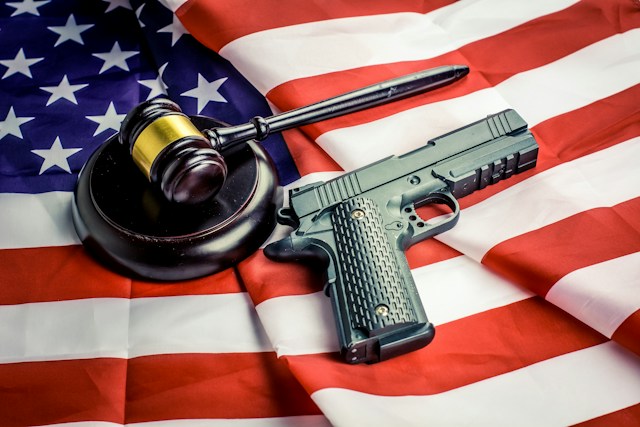Everything You Need to Know About Court-Ordered Illegal Weapons Possession Course
Living in a world where firearms are present, understanding the implications of illegal weapons possession and the potential consequences of violating a court order related to it is crucial. This information empowers you to make responsible choices, protect yourself and others, and navigate the legal landscape confidently. Stay informed, stay safe, and remember – knowledge is power when navigating the delicate balance of security and legal responsibilities surrounding firearms.
What is Court Ordered Illegal Weapons Possession?
Court-ordered illegal weapons possession is a situation where an individual, by legal obligation, must refrain from owning or possessing any firearm or other prohibited weapon. This situation typically arises from two main scenarios: firstly, as a legal consequence of a criminal conviction related to weapon offenses, where a judge might impose such a restriction alongside fines or incarceration. Secondly, it can be mandated as a protective measure during ongoing legal proceedings, such as restraining orders or domestic violence cases, to ensure the safety of involved parties. In some instances, individuals who demonstrate a history of potentially irresponsible or dangerous weapon handling, perhaps due to mental health concerns or domestic violence incidents, may also be court-ordered to complete a “court ordered illegal weapons possession course.” These programs, often supervised by legal professionals or mental health specialists, educate participants on weapon safety laws, responsible firearm ownership practices, and the potential consequences of illegal possession. The goal is to equip them with the knowledge and tools to prevent future occurrences and safeguard themselves and those around them.
What Are the Consequences of Court-Ordered Illegal Weapons Possession?
Violating a court order of illegal weapons possession can have significant and far-reaching consequences. The severity of the repercussions depends on various factors, including the type of weapon involved, the specific terms of the order, and the offender’s legal history. However, the potential penalties can range from substantial fines and jail time to criminal charges for contempt of court or even additional weapon-related offenses. Moreover, violating the order can jeopardize ongoing legal proceedings, potentially impacting outcomes such as custody arrangements or probation terms. Beyond legal consequences, disobeying such an order can raise concerns about the individual’s safety and those around them. It may indicate a failure to address underlying issues that led to the initial weapons restriction, potentially triggering further intervention or restrictions. Ultimately, violating a court-ordered illegal weapons possession carries a high risk of legal, personal, and community repercussions, emphasizing the importance of strict adherence to the established terms.
How Can I Get a Court Order for Illegal Weapons Possession?
Know that getting a court order to address someone else’s possession of illegal weapons is not something you can initiate directly; these orders typically arise from specific legal contexts.
If someone faces criminal charges related to possessing illegal weapons, the court may order them as part of their sentencing or probationary conditions. They base this decision on the evidence presented and law enforcement or prosecution recommendations.
In cases involving domestic violence or threats of harm, courts may issue a restraining order that restricts an abuser’s access to weapons. Proving this requirement would require both evidence and legal representation demonstrating its necessity.
Imagine someone poses an immediate risk to themselves or others due to mental illness and access to weapons; the court may order temporary weapon restrictions following proper legal procedures and evaluations. In such a situation, weapon restriction measures can be ordered temporarily until their mental condition improves.
Your role would be to cooperate with legal authorities or seek legal advice if you suspect someone of illegally possessing weapons and potentially endangering safety.
Who Can Get a Court Order for Illegal Weapons Possession?
Depending on specific duties and legal procedures, one may successfully get a court order to possess illegal firearms. The parties’ recommendation in criminal proceedings for weapon offenses serves as the foundation for determining whether or not weapon restrictions should be included as penalties, protective orders, or mental health commitments. Parties can present evidence and argue for restrictions as part of sentencing or probation conditions. Through legal representation, victims of domestic abuse or potential danger can seek restraining orders, which include prohibitions on the use of weapons against their abuser(s). In addition, individuals with mental health disorders who represent a risk because they own firearms may file a lawsuit with law enforcement to impose temporary weapons prohibitions.
Accessing court orders regarding the possession of illegal weapons is common. Instead, it depends on specific legal circumstances and involvement from authorized individuals or legal proceedings. Furthermore, any attempts at influencing these orders without sufficient standing or evidence could lead to devastating results.

